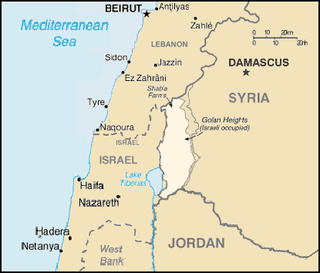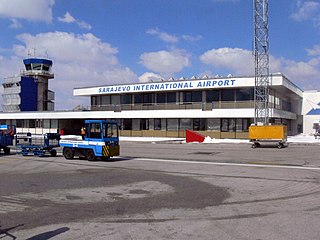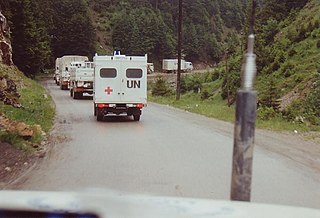
United Nations Security Council resolution 497, adopted unanimously on 17 December 1981, declared that the Israeli Golan Heights Law, which effectively annexed the Golan Heights, is "null and void and without international legal effect" and further calls on Israel to rescind its action.

United Nations Security Council Resolution 452, adopted 20 July 1979, was on the issue of the Israeli settlements in Jerusalem, the West Bank, Gaza Strip and the Golan Heights, specifically the illegality thereof. It states "the policy of Israel in establishing settlements in the occupied Arab territories has no legal validity and constitutes a violation of the Fourth Geneva Convention relative to the Protection of Civilian Persons in Time of War of 12 August 1949" and "calls upon the Government and people of Israel to cease, on an urgent basis, the establishment, construction and planning of settlements in the Arab territories occupied since 1967, including Jerusalem."
United Nations Security Council Resolution 339 was adopted on 23 October 1973 in order to bring a ceasefire in the Yom Kippur War where Resolution 338 two days before had failed.

United Nations Security Council Resolution 350, adopted on 31 May 1974, established the United Nations Disengagement Observer Force, to monitor the ceasefire between Israel and Syria in the wake of the Yom Kippur War. UNDOF was initially established for a period of six months, but has had its mandate renewed by subsequent resolutions.
The following outline is provided as an overview of and topical guide to the United Nations:

United Nations Security Council Resolution 435, adopted on September 29, 1978, put forward proposals for a cease-fire and UN-supervised elections in South African-controlled South West Africa which ultimately led to the independence of Namibia. Importantly, it established the United Nations Transition Assistance Group (UNTAG) which oversaw the election and the South African withdrawal.

United Nations Security Council Resolution 345, adopted on January 17, 1974, after a resolution from the General Assembly, the Council decided to expand that working languages of the Security Council to include Chinese. Along with Chinese, the other four working languages of the Council were English, French, Russian and Spanish.
United Nations Security Council Resolution 365, adopted on 13 December 1974, after receiving General Assembly resolution 2312 and noting with satisfaction in unanimous adoption the Council endorsed the General Assembly resolution and urges the parties concerned to implement it as soon as possible, requesting the Secretary-General to report on the progress of the implementation of this resolution.

United Nations Security Council Resolution 385, adopted unanimously on January 30, 1976, recalled previous resolutions on the topic as well as an advisory opinion of the International Court of Justice that South Africa was under obligation to withdraw its presence from the Territory of Namibia. The Resolution reaffirmed the United Nations' legal responsibility over Namibia, expressed its concern over the continued illegal actions of South Africa and deplored the militarization of Namibia.

United Nations Security Council Resolution 426, adopted on March 19, 1978, written the same day as resolution 425, approved of the Secretary-General's report on its implementation and in-turn established the United Nations Interim Force in Lebanon for 6 months, to continue operation thereafter if the Council so decides.

United Nations Security Council Resolution 402, adopted on December 22, 1976, after hearing from the Minister of Foreign Affairs for Lesotho, the Council expressed concern at South Africa's decision to close the border with Lesotho in many areas in an attempt to pressure the country to recognise the "independence" of the bantustan Transkei. After recalling previous resolutions, the Council praised Lesotho for not recognising Transkei and stated it will organise economic assistance to the country from the organisation itself and other countries to help it overcome the blockade by South Africa.

United Nations Security Council resolution 713, adopted unanimously on 25 September 1991, after receiving representations from a number of Member States and commending the efforts of the European Community in the region, the Council decided to impose, under Chapter VII, an arms embargo on the Socialist Federal Republic of Yugoslavia, in light of the outbreak of fighting in the country. Resolution 713 was the first resolution that concerned the breakup of Yugoslavia.

United Nations Security Council resolution 781, adopted on 9 October 1992, after reaffirming Resolution 713 (1991) and all subsequent resolutions on the situation in the former Yugoslavia, the Council decided to impose a ban on military flights in the airspace over Bosnia and Herzegovina, acting in accordance with the provisions set out in Resolution 770 (1992).

United Nations Security Council resolution 805, adopted unanimously on 4 February 1993, after noting the death of International Court of Justice (ICJ) judge Manfred Lachs on 14 January 1993, the Council decided that elections to the vacancy on the ICJ would take place on 10 May 1993 at the Security Council and at a meeting of the General Assembly during its 47th session.

United Nations Security Council resolution 815, adopted unanimously on 30 March 1993, after reaffirming Resolution 743 (1992) and all subsequent relevant resolutions concerning the United Nations Protection Force (UNPROFOR) including 802 (1993) and 807 (1993), the Council, acting under Chapter VII of the United Nations Charter, extended UNPROFOR's mandate for an additional interim period ending 30 June 1993.

United Nations Security Council resolution 824, adopted unanimously on 6 May 1993, after considering a report by the Secretary-General Boutros Boutros-Ghali pursuant to Resolution 819 (1993), the Council discussed the treatment of certain towns and surroundings as "safe areas" in Bosnia and Herzegovina.

United Nations Security Council resolution 836 was adopted on 4 June 1993. After reaffirming Resolution 713 (1991) and all subsequent resolutions on the situation in the former Yugoslavia, the Council expressed its alarm at the continuing situation in Bosnia and Herzegovina and decided to expand the mandate of the United Nations Protection Force (UNPROFOR) by allowing it to use force to protect the "safe areas".
United Nations Security Council resolution 908, adopted unanimously on 31 March 1994, after reaffirming all resolutions on the situation in the former Yugoslavia and in particular Resolution 871 (1993), the Council extended the mandate of the United Nations Protection Force (UNPROFOR) until 30 September 1994 and declared its intention to increase the number of personnel in the peacekeeping force.

United Nations Security Council resolution 958, adopted unanimously on 19 November 1994, after recalling all resolutions on the situation in the former Yugoslavia including Resolution 836 (1993), the Council, acting under Chapter VII of the United Nations Charter, determined that the situation in the former Yugoslavia continued to constitute a threat to international peace and security and in its support of the United Nations Protection Force (UNPROFOR), authorised the use of air strikes in Croatia in addition to Bosnia and Herzegovina by Member States, in order for UNPROFOR to carry out its mandate.














